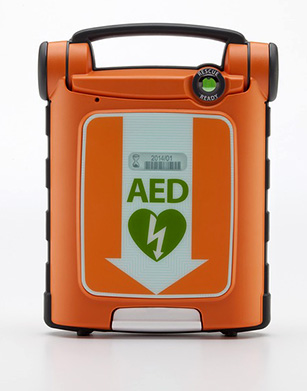Michigan bill would require public schools to have AEDs
Michigan lawmakers have brought forth a series of bills that would require schools to have automated external defibrillators (AEDs) and an emergency action plan around student-athletes suffering a cardiac event.Earlier this week, the Michigan House Regulatory Reform Committee unanimously voted to move the bills forward to the full House floor for consideration.
 The bills would apply to all public schools, K-12, in Michigan to create an emergency action plan and have the AEDs in place by the start of the 2025-26 school year.
The bills would apply to all public schools, K-12, in Michigan to create an emergency action plan and have the AEDs in place by the start of the 2025-26 school year.
A recent report from the Detroit Free Press detailed the legislation. Below is an excerpt from the Detroit Free Press report.
During that hearing, Rep. John Fitzgerald (D) noted that nationally, about 39% of all incidents of sudden cardiac arrest among those younger than 18 occurred in sports-related settings in 2022, according to the American Heart Association, as the Free Press previously reported. Among those ages 19-25, about 13% were sports-related.
Fitzgerald brought up Cartier Woods, a Detroit Northwestern High School boys basketball player who suffered cardiac arrest during a game and passed away a week later in Feb. 2023, as well as 16-year-old Wes Leonard, a Fennville boys basketball player who passed away in March 2011 after suffering cardiac arrest after hitting a game-winning shot. After Leonard’s cardiac arrest, the AEDs previously placed in the gym was removed and later retrieved only to find the battery was out of power.
“This is commonsense legislation that will protect the lives of student-athletes, school personnel and families,” he said.
As outlined in HB 5527, the plans would require the formation of cardiac emergency response teams at each school, ensuring that automated external defibrillators (AEDs) are easily retrievable and clearly identifiable on campus and at athletic facilities, for those AEDs to be routinely maintained and for members of the response teams to be trained in CPR, first aid and AED administration.
Cardiac emergency response plans would have to be evaluated triennially. Emergency drills would be required annually, and routine maintenance of AEDs would also be required.
Initially, the bill would have required AEDs to be placed where they could be accessed within 1 to 3 minutes, but a bill substitute adopted Tuesday revised the requirement to require the placement of AEDs in an easily retrievable location.
To read the full story from the Detroit Free Press, click here.







